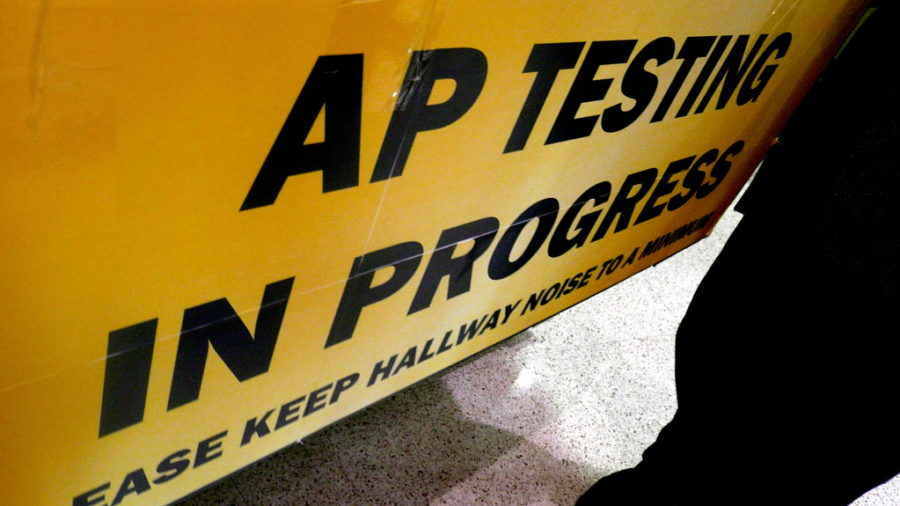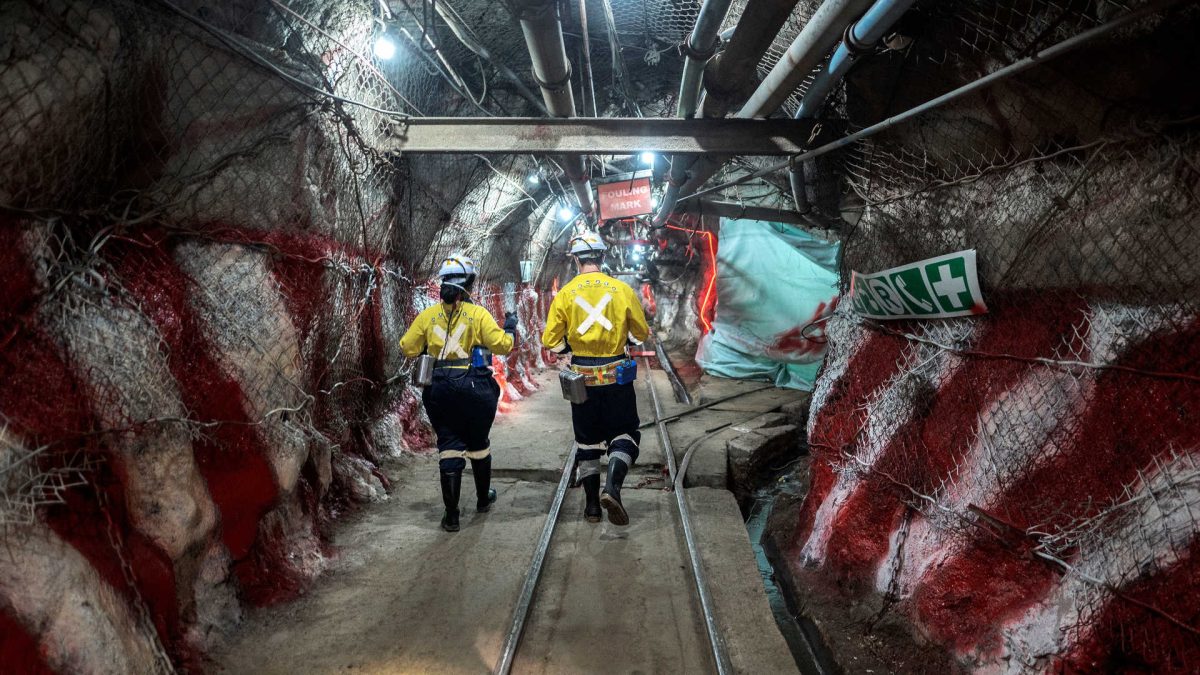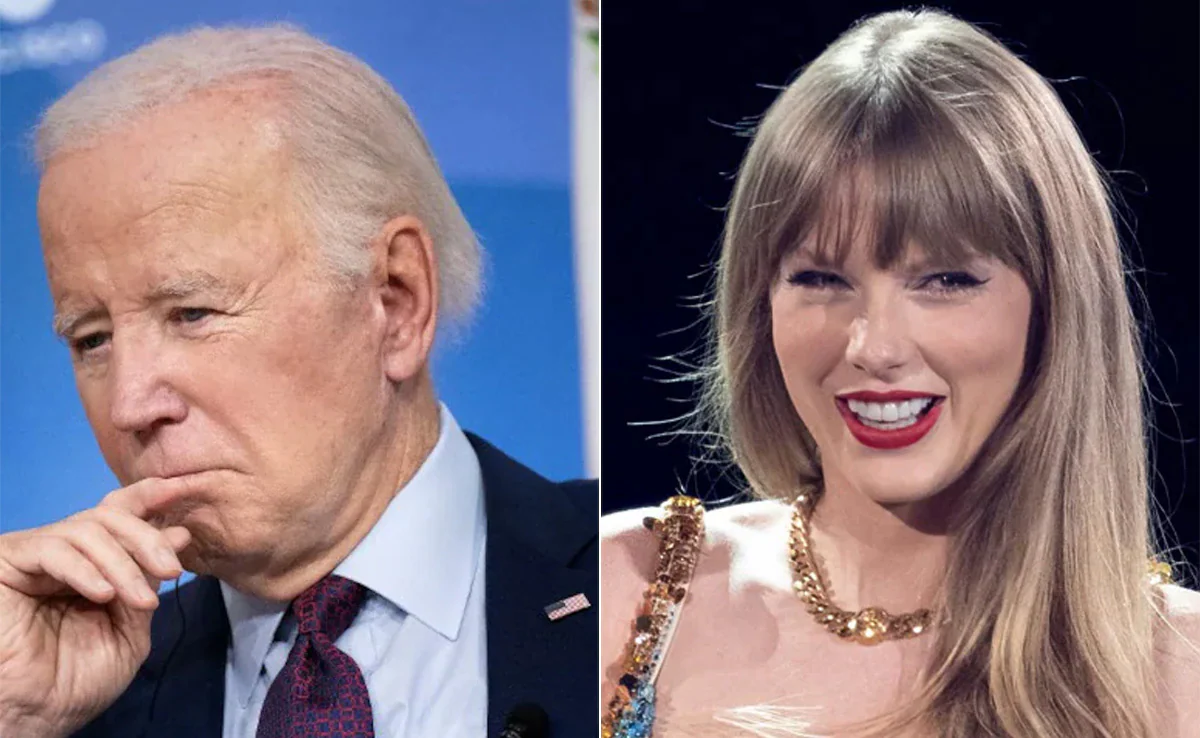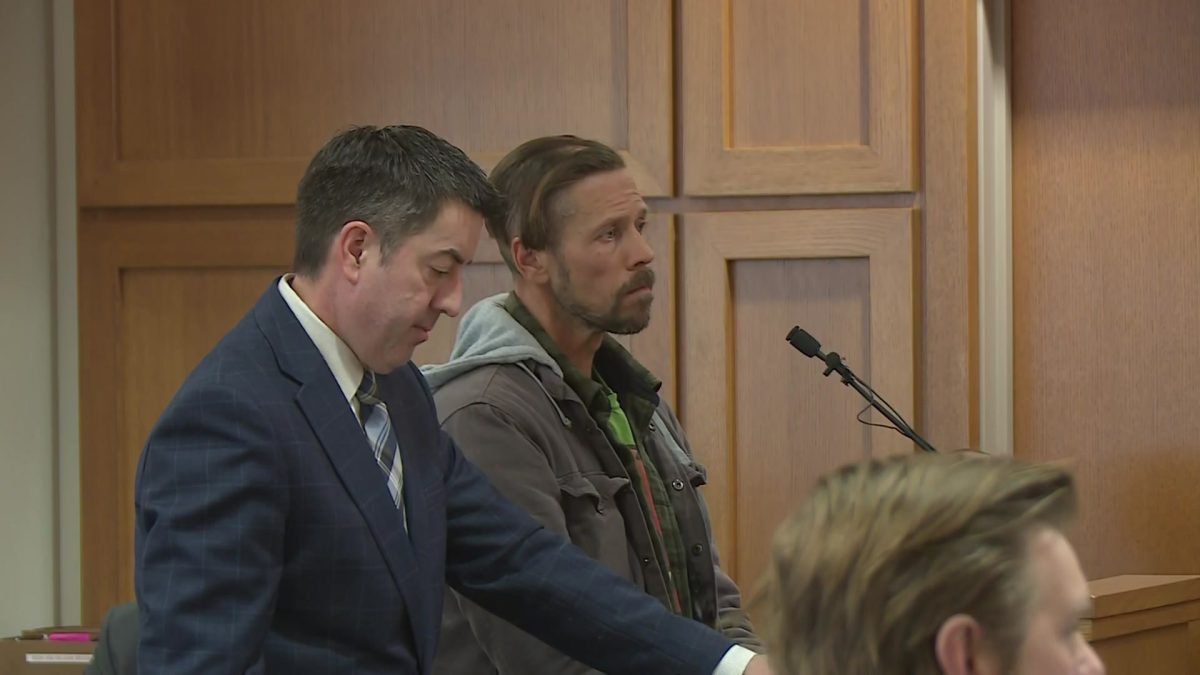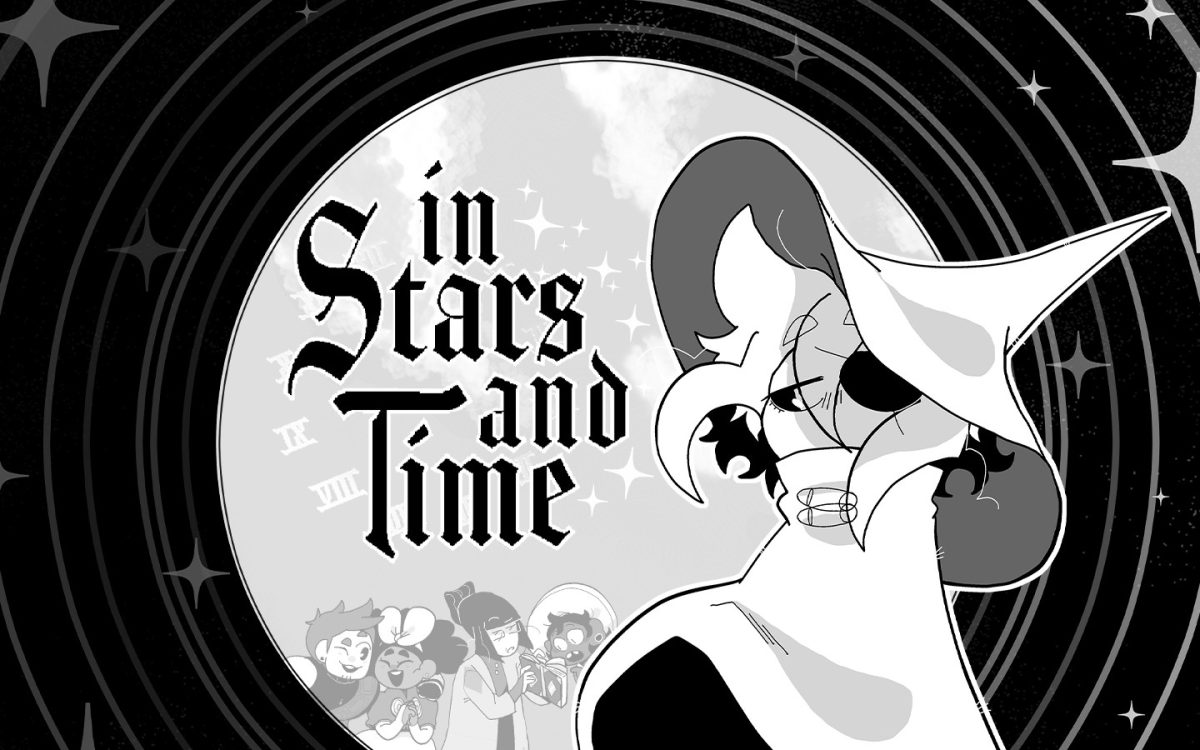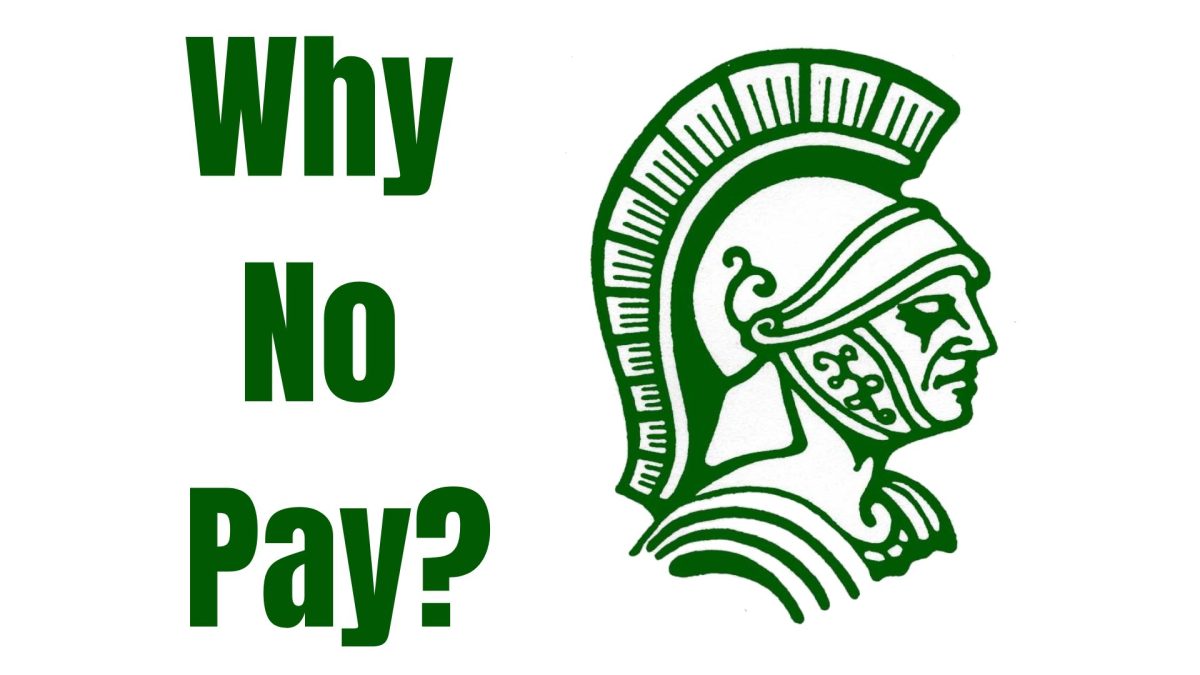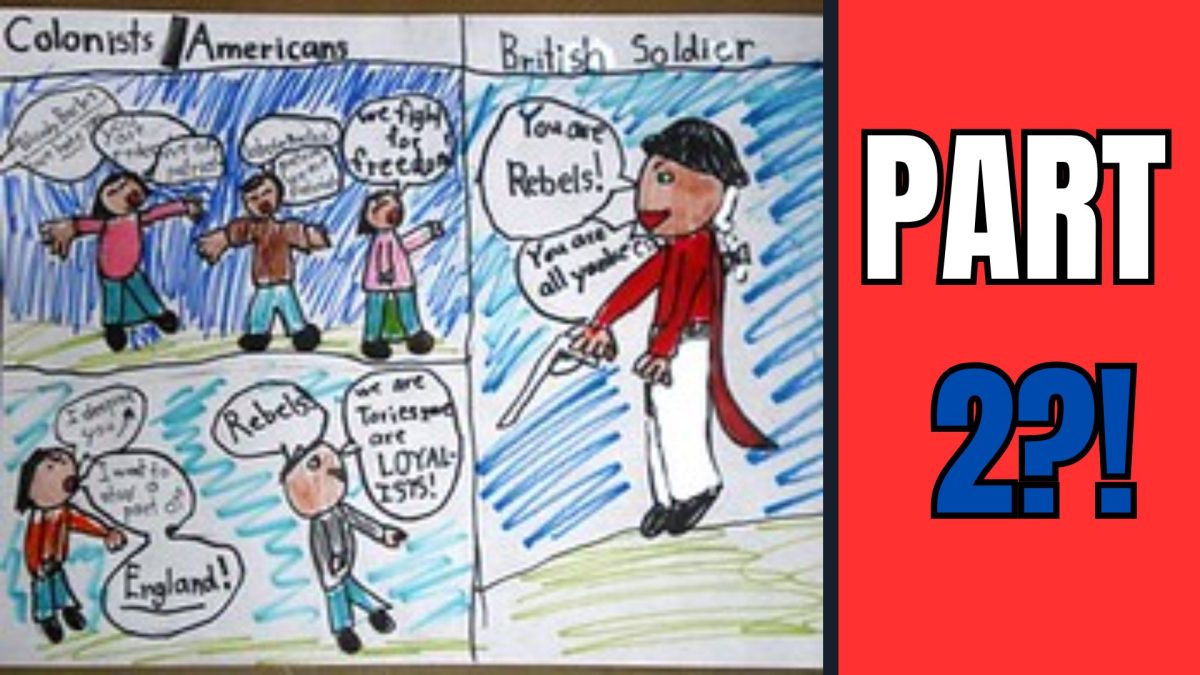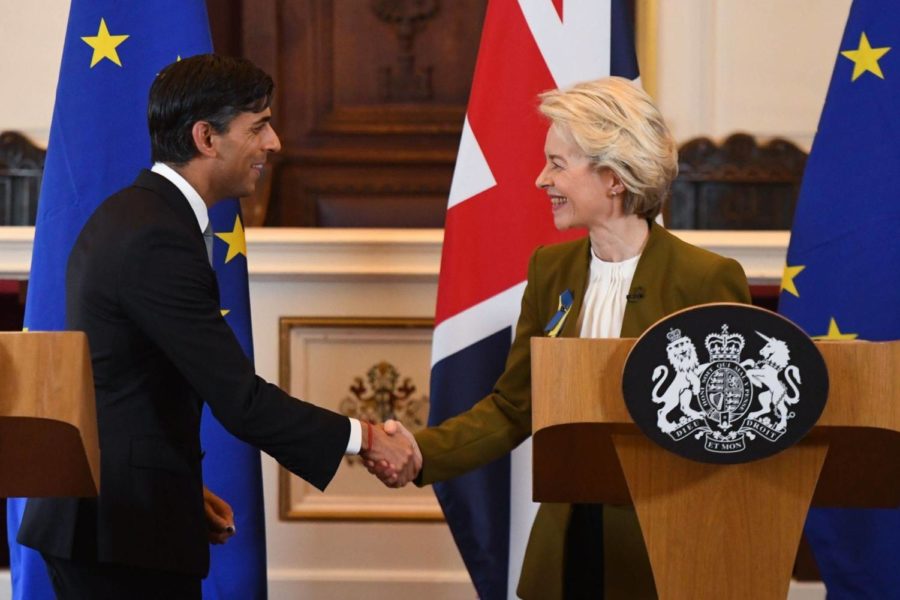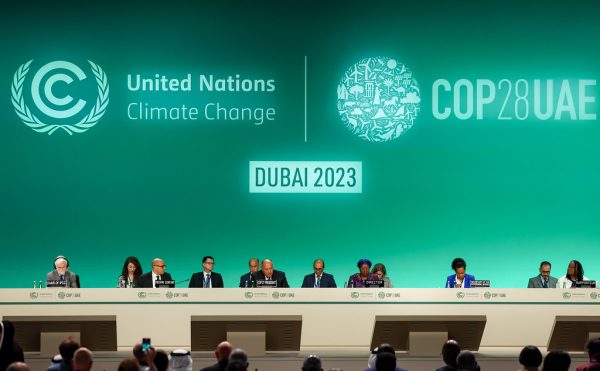Post-Brexit Trade Agreement About Northern Ireland Made Between UK and EU
March 12, 2023
In late February of 2023, Great Britain and the European Union finally struck a deal regarding trade rules with Northern Ireland, hoping to clear up issues caused by Brexit with the portion of the Island of Ireland.
The situation with Northern Ireland is currently quite complicated, as it is technically controlled by Britain, despite being part of the Island of Ireland. Per the Belfast Agreement, also known as the Good Friday Agreement, signed in April 1998, Northern Ireland is considered a part of the United Kingdom, although some still wish for a united Ireland. With Brexit becoming finalized in early 2020, Northern Ireland also separated from the European Union as part of the UK, causing import and border check debates as the Republic of Ireland remained a member of the EU.
Working coordinately, UK Prime Minister Rishi Sunak and European Commission President Ursula von der Leyen recognized the developing problems regarding trade rules with Northern Ireland and hoped for cooperation similar to that occurring with the war in Ukraine. Sunak titled the deal with the EU the “Windsor Framework,” which hopes to address issues caused by the Northern Ireland Protocol, something advocated for by Boris Johnson in 2019 and added to the Brexit deal. This protocol attempted to keep Northern Ireland in contact with the EU by preventing a hard border for trade between Northern Ireland and the Republic of Ireland.
The Windsor Framework is designed to target problems caused by the Northern Ireland protocol in three main sectors. First, Sunak described the protection of free trade between Northern Ireland and Great Britain as using “green and red lanes” for any items entering Northern Ireland from Great Britain. Recognizing open trade between the Republic of Ireland and Northern Ireland, the Winsor Framework will place any goods potentially destined for the Republic into a “red lane” to be checked, while goods intended to remain in Northern Ireland may pass freely. These “green lane” items could include things like food, although the regulation of specific goods will be rolled out slowly in order to make for a better transition.
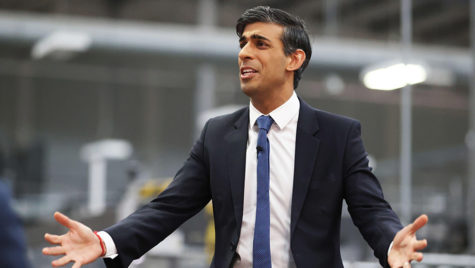
The second aspect of the Winsor Framework addresses taxes, or more specifically the VAT (Value-added tax) rates applied to Northern Ireland. Rather than the previous system of using EU-determined rates, the UK and EU agreed to have Northern Ireland use the UK government’s rates. This will allow, Sunak says, a more uniform policy between the UK and Northern Ireland.
Finally, the post-Brexit deal includes a “Stormont brake,” which essentially gives an “emergency brake” for any EU policies to Northern Ireland’s government. According to Sunak in a CNN article, “This will establish a clear process through which the democratically elected assembly can pull an emergency brake for changes to EU goods, rules that would have a significant and lasting effect on everyday lives.” There is a provision allowing the UK’s Westminster-style government to veto the EU law targeted by the brake. Currently, this is the most controversial part of the deal, as it is unclear both how and when it could be used. It could also result in political tension as if the Stormont brake is used, but the UK doesn’t veto the EU law, there could be tension between Britain and Northern Ireland. Similarly, since Northern Ireland’s government is formed by Unionist and Republican officials by requirement, a split vote over the use of the Stormont brake could force the British government to pick a side.
While there are some clear benefits outlined in the Windsor Framework, there has been some controversy over its policies. While some Brexiteers have supported Sunak’s work, there are still those who oppose the deal. Also, the situation is very fragile when it comes to Northern Ireland and Britain, as the Northern Ireland Protocol intended to essentially impose a border between the two areas of the UK, since goods were being checked between the two, and Northern Ireland was under EU regulation.
In terms of immediate impact on Northern Ireland, not much is expected to occur to benefit the island region. Currently, Northern Ireland does not have a government, as Brexit caused a collapse. With the Belfast Agreement, Northern Ireland must have politicians representing both Unionist and Republican communities in the area. Massive disagreements, particularly over the Northern Ireland Protocol, caused the Democratic Unionist Party to argue that the region was separated from the UK. However, if a government does return to function, the situation with the EU and the UK will become less complicated, as the Windsor Framework addresses EU trade and law agreements. Without a government though, very little of this new deal can effectively be enforced, as the Stormont Brake is unable to work without leadership.
In general, there are several parties who are satisfied with the deal, most notably, the EU and Sunak, the drafters of the Windsor Framework. The EU has been hoping to move on from Brexit and focus on more pressing issues, such as the war in Ukraine, while Sunak is satisfied with gaining support from Brexiteers since this group was a primary threat to his success as UK Prime Minister.



